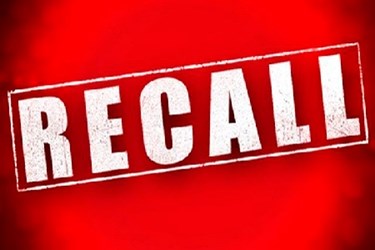Allergen-Based Recalls Put Two Food Makers In The Headlines
By Laurel Maloy, contributing writer, Food Online

Mislabeling events at two food making firms have put not only put consumers at risk, but have also put their brand reputation in jeopardy
On November 14, B & G Foods — one of the nation’s top 100 food processors based on sales — announced a Class I recall for undeclared allergens. Upon learning that spices obtained from a third-party supplier were contaminated with peanuts and almonds, B & G halted production and issued the notification. The affected products bear the Ortega and Las Palmas brand names and were distributed to foodservice outlets and retail stores across the nation. A complete list of the affected products is available here.
On November 15, a Lancaster, PA facility — City Line Foods Manufacturing — issued a Class I recall due to misbranding and undeclared allergens. The Food Safety Inspection Service (FSIS) discovered, during a routine labeling review, that a “releasing agent,” used on food contact surfaces contained soy lecithin, a known allergen. More than one million pounds of pretzel dogs have consequently been affected. The products were produced between February 14 and November 14, 2014 and shipped nationwide for fund raising activities and retail distribution.
The following products, bearing the establishment number, “EST. or P-34073” inside the USDA mark of inspection, are affected:
- Auntie Anne’s All Beef Classic Pretzel Dogs
- Auntie Anne’s Fundraising Pretzel Dogs
- West Creek Black Angus Beef Pretzel Dogs
- Kunzler Pretzel Dogs
- Kunzler Turkey Pretzel Dogs
- Berks All Beef Pretzel Franks
- Nathan’s Famous Pretzel Dogs
- City Line Foods Pretzel Dogs
All instances of mislabeling, misbranding, and undeclared allergens are highly-preventable occurrences. Luckily, there have been no adverse reactions reported due to the consumption of these affected products. However, that is not to say that none occurred; reactions could have been attributed to something else or were so minor as to go unreported. The fact that no reactions, particularly resulting in hospitalization or death, have been reported, is just plain lucky.
Food Traceability: Solving The Imperative Of Compliance
In 2013, allergen contamination was the number one reason for issuing a recall. In October, 11 companies issued recalls for undeclared allergens. Not all made headlines — not all are from companies large enough, or involved a large enough amount of product, to warrant a mention on national news. Thus far into November, four food product recalls have been issued for undeclared Class I allergens and one for undeclared sulfites. One, in particular, contained undeclared fish, wheat, and egg — all three of which are on the CDC’s Top Eight allergen foods or food groups. This instance, involving Garden Rotini Salad, was discovered by an associate at store level shortly after distribution, most assuredly resulting in the fact there were no adverse reactions. This was a lucky break for WAWA foods and most definitely preventable.
To reiterate a Food Online article 6 Ways To Avoid Allergen Recalls, the majority of food-allergen recalls are the result of mislabeling. Mislabeling is actually a Class III recall, as defined by FSMA. Undeclared allergens, though, elevate the recall to Class I, due to its ability to result in severe health consequences.
Mislabeling or misbranding is always preventable, unless a supplier is purposely fooling its customers by not disclosing allergen content. It is a food processor’s responsibility to vet its suppliers — after all, it is not the supplier’s name that will be plastered on the headlines or included in an FDA recall press release. As demonstrated above, in the PA firm’s recall, that includes the use of any materials utilized during production.
FSMA Friday: Discussions of the Foreign Supplier Verification Program
As a precaution, at a minimum, your company should be asking for the ingredients list from any supplier’s material and keeping a copy for your records. It is also not unreasonable to enter into a written contract with your suppliers, requiring they inform you of any ingredient changes in regard to food or chemicals. Any material or ingredient used in food production could conceivably contaminate your product. Isn’t it worth the extra due diligence to protect your brand and to potentially be able to hold the supplier financially responsible for the fallout from a recall?
